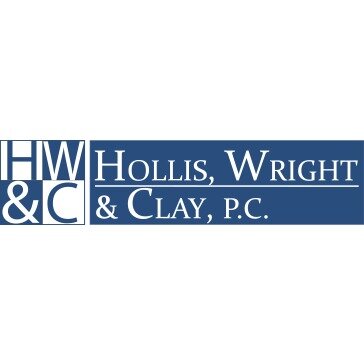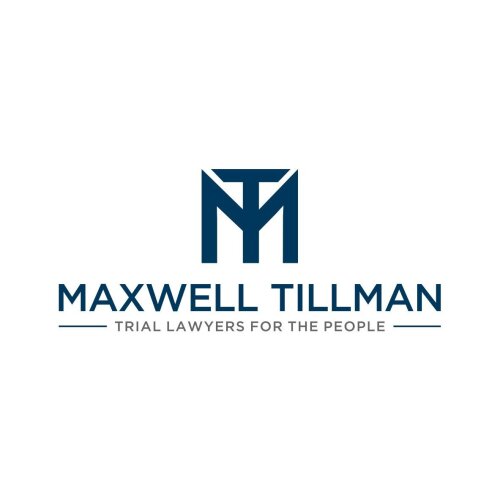Best Accidents & Injuries Lawyers in Birmingham
Share your needs with us, get contacted by law firms.
Free. Takes 2 min.
List of the best lawyers in Birmingham, United States
United States Accidents & Injuries Legal Articles
Browse our 1 legal article about Accidents & Injuries in United States written by expert lawyers.
- What to Do After a Serious Car Accident in the US: A Legal Step-by-Step Guide
- Call 911, get medical help, and do not admit fault. Photograph the scene, vehicles, and your injuries, and get witness names and the officer's report number. Report the crash to your insurer quickly. In no-fault states, PIP deadlines are short (e.g., Florida requires initial treatment within 14 days; New York... Read more →
About Accidents & Injuries Law in Birmingham, United States
Accidents and injuries law, also known as personal injury law, consists of legal rules and regulations that determine who is responsible for handling the physical and emotional harm that results from accidents and injuries. In Birmingham, personal injury claims are handled under the Alabama tort law, which covers a wide spectrum of scenarios including automobile accidents, slip and fall injuries, medical malpractice, and wrongful death among others.
Why You May Need a Lawyer
In instances where you have been injured due to someone else's negligence, fault, or intentional wrongdoing, it would be beneficial to consult with a lawyer. Legal representation can help ensure you fully understand your rights, the true value of your claim, and lead you through the complex processes of negotiating with insurance companies or taking the matter to court if necessary. Additionally, a lawyer can help counter any defenses put forth by the opposing party.
Local Laws Overview
Alabama operates under a traditional tort system, which means the at-fault party is liable for damages. Moreover, there’s a statute of limitations for personal injury claims in Alabama, which stipulates that a claim must be filed within two years from the date of the accident. Notably, Alabama has a specific rule known as the contributory negligence rule that bars a plaintiff from recovering any damages if they are found to be even 1% at fault.
Frequently Asked Questions
What kind of compensation can I expect to receive?
Compensation in personal injury cases can vary greatly and often depends on the severity of the injury, the cost of medical treatment, lost wages, emotional distress, and property damage among other factors.
Should I accept the insurance company’s first offer?
Often, the initial offer from an insurance company is significantly lower than what you might be entitled to. It’s generally suggested you avoid accepting the initial offer without first consulting with an attorney.
Do I have a case if I was partially at fault?
Alabama law follows a "contributory negligence" rule; if you're found to have any degree of blame for the incident, you might not be able to recover any damage; this is one area where legal representation is crucial.
What should I do immediately after an accident?
First and foremost, seek medical treatment. Following that, try to document the accident circumstance as thoroughly as possible. If feasible, gather witness information, and report the accident to police officers on the scene.
Can I make a claim if a family member died in an accident?
Yes, wrongful death claims can be made by the immediate family or the estate of a deceased individual who lost their lives due to someone else's negligence.
Additional Resources
The Alabama State Bar Association, local law libraries, the Alabama Department of Insurance, and the Alabama Legal Services Corporation all provide resources that may benefit those seeking legal advice or representation in personal injury cases.
Next Steps
If you or a loved one has sustained injuries due to the actions or negligence of another party, it's vital to consult with an experienced personal injury lawyer as soon as possible to discuss your case, know your rights, and begin the process of filing a claim.
Lawzana helps you find the best lawyers and law firms in Birmingham through a curated and pre-screened list of qualified legal professionals. Our platform offers rankings and detailed profiles of attorneys and law firms, allowing you to compare based on practice areas, including Accidents & Injuries, experience, and client feedback.
Each profile includes a description of the firm's areas of practice, client reviews, team members and partners, year of establishment, spoken languages, office locations, contact information, social media presence, and any published articles or resources. Most firms on our platform speak English and are experienced in both local and international legal matters.
Get a quote from top-rated law firms in Birmingham, United States — quickly, securely, and without unnecessary hassle.
Disclaimer:
The information provided on this page is for general informational purposes only and does not constitute legal advice. While we strive to ensure the accuracy and relevance of the content, legal information may change over time, and interpretations of the law can vary. You should always consult with a qualified legal professional for advice specific to your situation.
We disclaim all liability for actions taken or not taken based on the content of this page. If you believe any information is incorrect or outdated, please contact us, and we will review and update it where appropriate.
Browse accidents & injuries law firms by service in Birmingham, United States
Birmingham, United States Attorneys in related practice areas.













